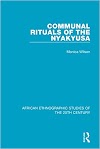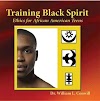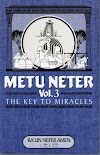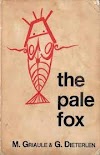2014 Reprint of Original 1907 Edition [Two Volumes in One]. Exact facsimile of the original edition, not reproduced with Optical Recognition Software. Massey was one of the first Egyptologists in modern times to suggest that with the final eclipse of the old Land of Kam [a.k.a. ancient Egypt], a brilliant light had been extinguished in world civilization. There was a small compensation in the often meteoric rise of other cultures subsequently, but the luminance of these later cultures was, Massey suggests, a paler reflection of the Nile Valley sun that had set. In this, the most philosophical of his works on ancient Egypt, Massey leads a tour through thousands of years of sociological, cultural, and spiritual development, all the while pointing, with dazzling reason and persuasive prose, to a distant, common, Egyptian origin. In the first volume Massey was primarily interested in elaborating how the first humans emerging in Africa created thought. What had been evident to him from the outset was that the myths, rituals and religion of ancient Egypt--or Old Kam--had preserved virtually intact a record of the psycho-mythic evolution of humanity. In the second volume Massey examines the celestial phenomenon known as the Precession of the Equinoxes. He believed that only by understanding this phenomenon was it possible to fathom Nile Valley history. The last half of the second volume is devoted to the Kamite sources of Christianity. Massey sought to demonstrate the manner in which New Testament Christianity evolved directly out of Osirian mysteries. One of the more important aspects of Massey's writings were his assertions that there were parallels between Jesus and the Egyptian god Horus. Massey, for example, argued that: both Horus and Jesus were born of virgins on 25 December, raised men from the dead (Massey speculates that the biblical Lazarus, raised from the dead by Jesus, has a parallel in El-Asar-Us, a title of Osiris), died by crucifixion and were resurrected three days later. These assertions have influenced various later writers such as Alvin Boyd Kuhn, Tom Harpur, Yosef Ben-Jochannan, and D.M. Murdock.














0 Comments